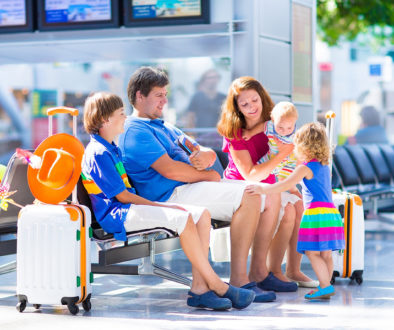The Great Outdoors
Most people agree that outdoor activities such as riding bicycles and running are beneficial to a child’s physical health. Many parents would also agree that outdoor time can work wonders for a child’s mood; a baby who is fussy may calm down instantly when taken outside for some fresh air and a change of scenery.
What some people do not realize is that playing outside can contribute to a child’s mental and social health as well. When children are given a chance to be in charge of their own outdoor activities (rather than prescribed play), they are using their imaginations and expanding their creativity. Encouraging children to play outside is not always easy though; after all, computers and television can seem much more appealing to some children. Below are several ways outdoor play can be incorporated into a child’s daily life:
- Pack up a ball, a blanket, and some snacks for a picnic in a nearby park or even your own backyard.
- Take a family walk or bike ride and point out trees, flowers, birds, etc. along the way.
- Set up a sprinkler or fill some buckets/cups with water and allow children to experiment with splashing and pouring.
- Coordinate a visit to the playground with other parents of young children.
- Provide bubbles or sidewalk chalk for your child to experiment with.
- Send your child outside with a basket or bucket to go on a “nature hunt” for items such as pinecones, leaves, rocks, etc.
While young children still need you to provide opportunities or set the stage for outdoor play, resist the urge to direct and coach them on exactly what to do. Giving them the freedom to explore and create is an important part of building their resourcefulness and problem-solving skills.
PARENTING TIP:
Young children learn a tremendous amount by using their senses. The great outdoors is a perfect place to expose children to a variety of things they can see, hear, smell, touch, and possibly even taste.
This is an article by Parenting Educator, Melissa M.





